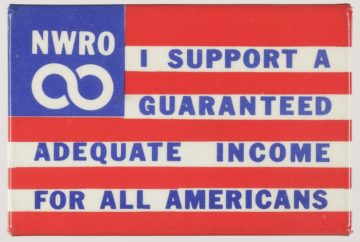Simon Torracinta in the Boston Review:
 Dreams of a guaranteed income are longstanding, but they leapt back into the public imagination in the wake of the dismal recovery from the 2008 financial crash, endorsed by a diverse array of figures on both the left and right. In 2020 presidential candidate Andrew Yang briefly managed to catapult himself into the media spotlight by pitching an eye-catching “Freedom Dividend” of $1,000 a month to every U.S. citizen over the age of eighteen. Building on this momentum, the massive social and economic dislocation of the pandemic and the nearly unprecedented use of fiscal firepower seemed poised to effect a permanent transformation of the welfare system in both the United States and across much of the Global North.
Dreams of a guaranteed income are longstanding, but they leapt back into the public imagination in the wake of the dismal recovery from the 2008 financial crash, endorsed by a diverse array of figures on both the left and right. In 2020 presidential candidate Andrew Yang briefly managed to catapult himself into the media spotlight by pitching an eye-catching “Freedom Dividend” of $1,000 a month to every U.S. citizen over the age of eighteen. Building on this momentum, the massive social and economic dislocation of the pandemic and the nearly unprecedented use of fiscal firepower seemed poised to effect a permanent transformation of the welfare system in both the United States and across much of the Global North.
Yet as soon as the drastic recovery measures began to revive the U.S. growth engine and inflation began to tick upward as snarled supply chains creaked under new waves of consumer demand, a chorus of economists and employers began to scream that the emergency measures were responsible for overheating the economy. Today inflation anxiety continues to dominate headlines, the impact payments have entirely stopped, and every pandemic-era expansion of the transfer system has been allowed to quietly expire.
More here.
